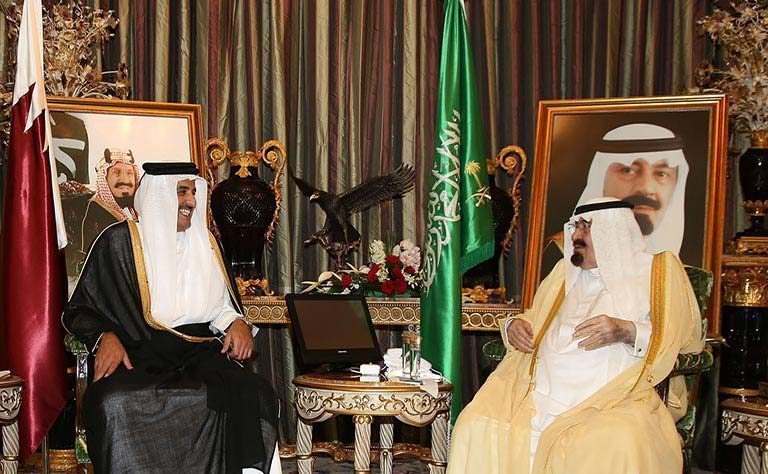
An eight-month spat between Qatar and three of its Gulf neighbors appears to be finally winding to a close.
Late Sunday evening, the official news agencies of Qatar and Saudi Arabia reported that ambassadors from Bahrain, KSA and the UAE would be returning to Doha after representatives from the countries hashed out a new accord to end their dispute:
“During the meeting, they reached the Riyadh Complementary Arrangement, which pumps in for more unity of the GCC member states, their interests and future of their peoples.
The Arrangement is heralding opening a new page, which will be a strong prerequisite to drive the joint action procession and to move towards a bold and cohesive Gulf entity, especially, amid the current critical situation the region undergoes, which demands doubling the efforts and closing the ranks to protect their security and stability.”
Analysts have previously suggested that the GCC was under pressure from its western allies to resolve their internal differences and confront external threats in the region, namely ISIL.

However, the ongoing conflicts in Iraq and Syria failed to immediately end the dispute between the countries, which publicly erupted in March when Bahrain, Saudi Arabia and the UAE announced they were jointly withdrawing their ambassadors from Doha.
Those three countries accused Qatar of violating an agreement among GCC members not to interfere in the internal affairs of other countries.
That was widely interpreted to be a reference to Qatar’s support for the Muslim Brotherhood, which Saudi Arabia and the UAE view as a threat to their own authority and have banned as a terrorist organization.
The three countries also apparently took issue with reporting done by Qatar-based and funded Al Jazeera Media Network.
Peaceful promises
There has been talk of resolution before. In April, senior Gulf leaders apparently signed a statement in Riyadh to ensure the security, stability and interests of each Gulf state without compromising their sovereignty.
At the time, Qatar’s foreign minister said the agreement signaled that “the dispute is over” between Doha and its neighbors.
But there were few details released about the deal, and in May, Bahrain’s Minister of Foreign Affairs said that the GCC states were still “working on overcoming differences.”

Since then, Qatar has made some concessions to smooth over relations – including asking seven senior members of the Muslim Brotherhood to leave the country.
The UAE and Saudi Arabia view the Brotherhood’s brand of political Islam as a threat to their authority and have banned the organization, designating it a terrorist group.
Qatar also became one of the last Gulf states to pass a restrictive new cybercrime law that, in compliance with a GCC agreement, criminalizes online insults of the region’s royal families.
And finally, the government here recently introduced new rules for local charities that send money abroad. That move was seen as a response to criticism that Qatar was turning a blind eye to individuals raising money for armed groups fighting in Syria.

However, last month, Gulf security sources said that during a meeting between Qatar’s Emir and Saudi’s King Abdullah, Sheikh Tamim was told “There is progress to be recognized, but more still needs to be done.”
It’s not clear if Qatar made further concessions ahead of last night’s agreement, which came several days after two of its Gulf neighbors signaled their ongoing displeasure with Doha.
Both the UAE and Bahrain abruptly withdrew their participation in the upcoming Men’s Handball World Championship, which is being held in Doha in January.
Thoughts?







